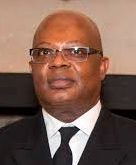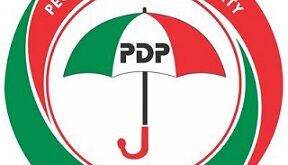By David Oguzierem
The political battle between Nasir El-Rufai and President Bola Ahmed Tinubu is a confrontation of seismic proportions, one that has sent shockwaves through political space. This war, long predicted by astute observers, has exposed the deep fissures within the ruling All Progressives Congress (APC) and threatens to reshape the nation’s political trajectory.
At the heart of this conflict lies a complex mix of personal ambitions, ideological clashes, and strategic miscalculations that have left both men — and the nation — scarred.
From the outset, El-Rufai was a vocal opponent of Tinubu’s presidential ambitions. As governor of Kaduna State and a prominent figure in the APC, El-Rufai worked tirelessly to undermine Tinubu’s influence within the party.
One of his boldest moves was orchestrating the removal of Adams Oshiomhole as the National Chairman of the APC, a position Oshiomhole used to consolidate Tinubu’s grip on the party. This calculated move was designed to derail Tinubu’s presidential aspirations by weakening his control over the party’s internal machinery.
El-Rufai’s antagonism extended beyond party politics. He openly campaigned against Tinubu’s dominance in Lagos politics, famously advising APC members on how to retire the so-called “godfather” of Lagos.
His alliance with Ogbeni Rauf Aregbesola, a former ally turned critic of Tinubu, further signaled his intent to dismantle the political empire Tinubu had built. El-Rufai’s ambitions to succeed President Muhammadu Buhari were evident, but when it became clear that the APC’s next candidate would emerge from the South, he recalibrated his strategy, setting his sights on becoming Tinubu’s vice-presidential candidate.
Despite his initial resistance, El-Rufai saw an opportunity in aligning with Tinubu as the 2023 elections approached. He mobilized the North West bloc within the APC, leveraging the region’s significant voting power to demand the vice-presidential slot. However, Tinubu, ever the master strategist, had other plans. Rather than cede to El-Rufai’s demands, Tinubu chose Kashim Shettima from the North East as his running mate, a move that left El-Rufai sidelined and humiliated.
Faced with two unappealing options—either back Tinubu in hopes of securing a significant government appointment or support an opposition candidate—El-Rufai opted for the former. He calculated that supporting Atiku Abubakar of the PDP or Rabiu Kwankwaso of the NNPP would undermine his long-term presidential aspirations. Peter Obi of the Labour Party was dismissed outright due to his perceived lack of political structure. El-Rufai threw his weight behind Tinubu, hoping to secure a ministerial appointment or the position of Secretary to the Government of the Federation (SGF).
However, Tinubu’s true intentions became clear when the list of ministerial nominees was submitted to the Senate. While El-Rufai’s name appeared on the list, his nomination was ultimately blocked using a security report—a move widely believed to have been orchestrated by Tinubu himself. This betrayal was a bitter pill for El-Rufai, who had been assured of a key role in Tinubu’s administration during the campaign.
El-Rufai’s exclusion was compounded by the realization that Tinubu had aligned with Kaduna’s current governor, Uba Sani, effectively sidelining El-Rufai from the political equation in his home state. Armed with this knowledge, El-Rufai began to plot his political comeback, returning to the drawing board with renewed determination.
The consequences of this feud are far-reaching. For Tinubu, the elimination of El-Rufai as a potential rival consolidates his power but at the cost of deepening divisions within the APC. The party, already plagued by internal dissent, risks losing the cohesion necessary to govern effectively. For El-Rufai, the betrayal has left him politically wounded, but it has also reignited his ambitions. A seasoned strategist, he is unlikely to fade quietly into the background.
The broader implications for Nigeria are troubling. This clash of egos and ambitions distracts from the pressing issues facing the nation, from economic instability to security challenges. The infighting within the APC could embolden the opposition, further polarize the electorate, and erode public trust in the political system.
In this high-stakes game of political chess, Tinubu emerges as the immediate winner, having neutralized a formidable adversary. However, the victory comes at a significant cost, as it lays bare the fragility of his coalition. El-Rufai, though temporarily defeated, remains a wildcard — a man with the resources and cunning to stage a political resurgence.
Ultimately, the El-Rufai-Tinubu feud serves as a cautionary tale about the perils of unchecked ambition and the destructive potential of political vendettas. As these two titans continue their battle, the collateral damage to Nigeria’s democracy and governance becomes increasingly apparent. The question now is not just who will emerge victorious, but whether the nation can withstand the fallout of this epic confrontation.
*Oguzierem is the Chairman, Central Governing Council of Rivers Defense Alliance (RIVDAL). Email – daveoguzierem@gmail.com. 07031200894,08133034594.
 PH Mundial – Port Harcourt Online Newspaper News Across The Region
PH Mundial – Port Harcourt Online Newspaper News Across The Region





